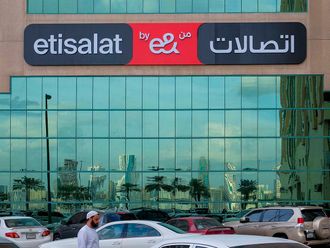Sharjah
Sharjah is bullish on the future of fintech (financial technology). By introducing digital technologies and solutions, the UAE can continue to lead and inspire global markets through innovative economies, according to Marwan Jasem Al Sarkal, the chief executive officer of the Sharjah Investment and Development Authority (Shurooq).
Addressing experts and delegates from various fields at the Euromoney Emirates 2017 conference, Al Sarkal said the conference is not only essential because of its global merits, but also “because of how it will address these issues and how it will help us work together in exploring innovative opportunities during this digital evolution.”
The UAE has at present reduced its dependence on oil, and the country plans to further slash the contribution.
The contribution of oil to the UAE’s GDP (gross domestic product), which has been falling and currently pegged at 30 per cent, will fall to 20 per cent by 2021, and is likely to fall to zero per cent in the next 50 years, according to government statistics.
Overhaul
Al Sarkal said the world is in early stages of an overhaul of finance, which is expected to go on for another 10-15 years.
The segment of population under the age of 30, or also called as active digital users, is driving the need for replacement of physical cash.
“We are living the early stages of a financial [technological] revolution ... Money is changing its form, and there will be a time where consumers will no longer need wallets to pay for their goods,” Al Sarkal said.
According to consultancy EY, the global mobile pay market is now estimated to surpass $500 billion (Dh1.84 trillion) by end of this year. And estimates are that almost $5 trillion will be spent on the Internet of Things (IoT) industry in five years, according to the World Economic Forum.
For example, in the GCC (Gulf Cooperation Council), the Financial Services Advisory highlighted blockchain technologies are set to transform financial industries in the GCC region.
For an industry worth nearly $100 billion in the GCC, and $19 billion in the UAE, “these types of technologies today have the ability to reduce time and cost, leading to a 60 per cent reduction in transaction costs for users,” Al Sarkal said.
SME boost
The focus is also on small and medium enterprises, which make up 60 per cent of the economy.
“The UAE is picking up the pace by developing legislative and institutional frameworks, and by encouraging SMEs, including facilitating access to finance,” said Younis Haji Al Khoori, Undersecretary, UAE Ministry of Finance.
In 2016, the Ministry of Finance launched the Shaikh Mohammad Bin Rashid Al Maktoum Fund to finance innovation with a capital of Dh2 billion, in addition to many other initiatives.
“We are open to new economic models and international experience. Moreover, our doors are open for the private sector, which we consider a strategic partner contributing to the formulation of appropriate policy responses to the evolving developments in the business world,” Al Khoori said.











